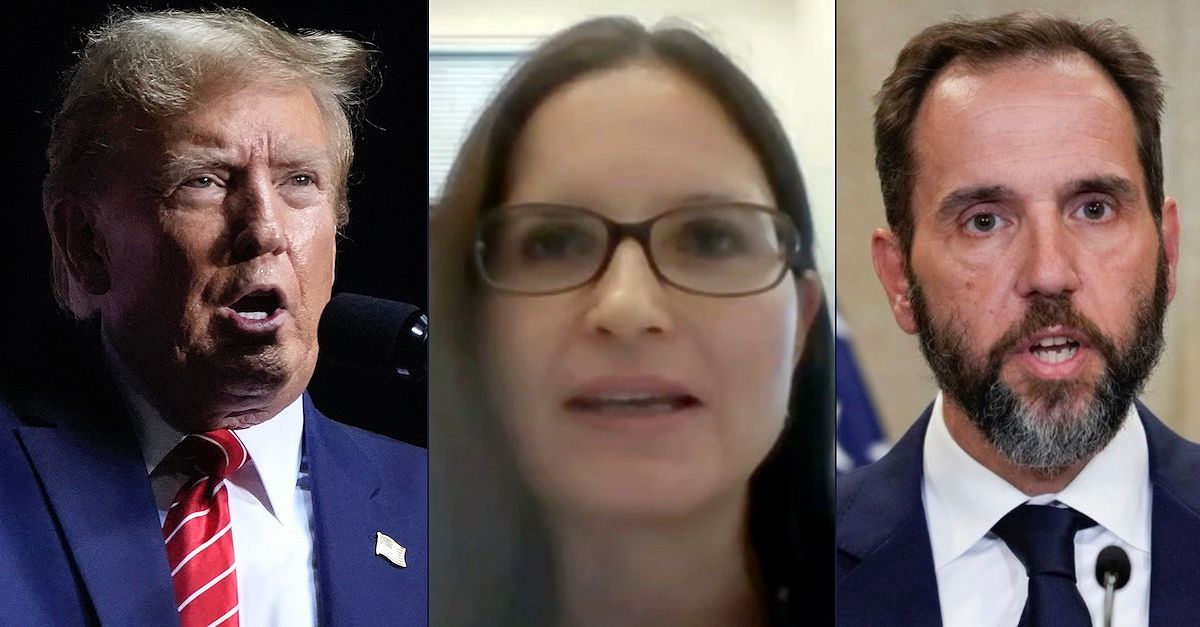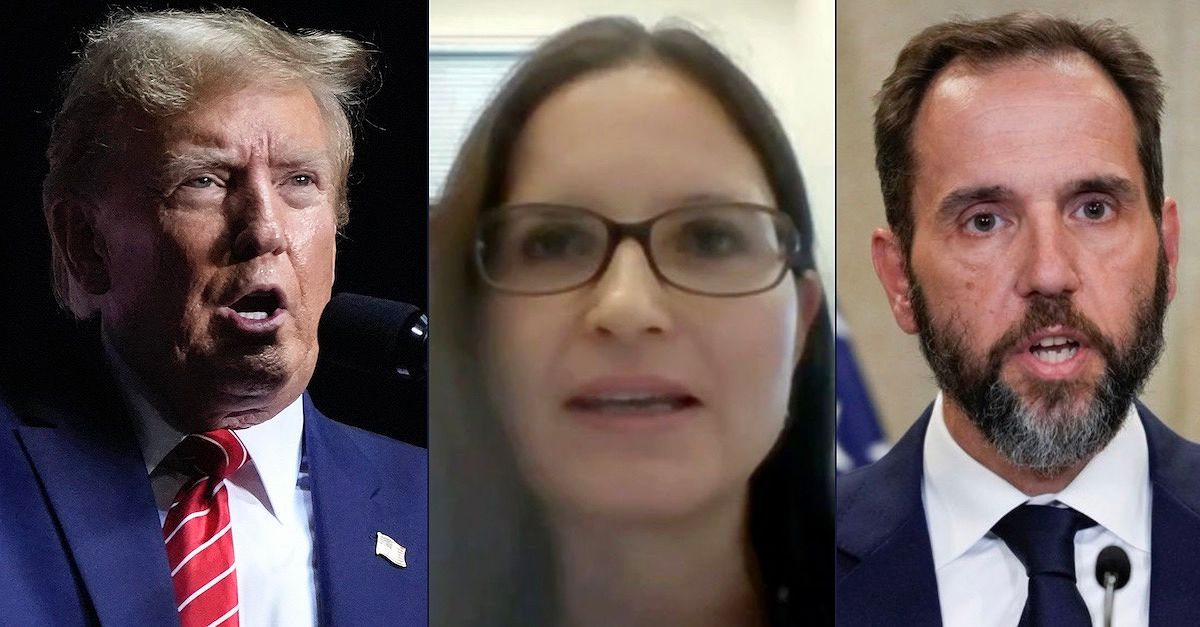Lawyers express confusion and disbelief over a judge’s order in the Mar-a-Lago trial involving former President Donald Trump, which raises concerns among legal experts and increases the likelihood of an acquittal.
Confusion and Concerns Over Judge’s Order in Mar-a-Lago Trial
Lawyers are expressing confusion and disbelief over a recent order issued by U.S. District Judge Aileen Cannon in the Mar-a-Lago trial involving former President Donald Trump. The judge’s order asked both the prosecution and defense to propose jury instructions based on the assumption that the Presidential Records Act (PRA) allowed Trump to unilaterally determine that classified documents were personal. This order has raised concerns among legal experts, with some suggesting that it increases the likelihood of an acquittal.

( Credit to: Lawandcrime )
Prominent conservative lawyer George Conway called the order the ‘most bizarre’ he has ever seen from a federal judge. He noted that this is not the first unusual order issued by Judge Cannon in this case. Other legal experts, such as former Obama administration ‘Ethics Czar’ Norm Eisen, criticized the order for ignoring the existing body of law governing classified documents.

( Credit to: Lawandcrime )
The judge has already rejected Trump’s motion to dismiss on the grounds of the Espionage Act’s ‘unconstitutional vagueness,’ but she has not yet ruled on the motion to dismiss under the Presidential Records Act. Special counsel Jack Smith argued that executive order 13526, in effect during Trump’s presidency, explicitly states that classified materials can only be accessed by authorized individuals who have signed non-disclosure agreements and have a ‘need to know’ the information. Smith rejected the notion that the PRA allowed Trump to declare classified documents as personal belongings.
In response to the judge’s order, Cannon has asked both the defense and prosecution to propose jury instructions that consider the Presidential Records Act. She has presented two alternative scenarios for the instructions, one allowing the jury to determine the categorization of documents and the other granting the president sole authority to make such decisions. The latter scenario could potentially pave the way for an acquittal.
Legal experts have reacted strongly to the judge’s order. Some, like former special counsel Robert Mueller’s top lieutenant Andrew Weissmann, have suggested that Jack Smith may consider seeking a writ of mandamus from the U.S. Court of Appeals for the 11th Circuit. This would be an extraordinary remedy and could lead to a reversal of Judge Cannon’s decision. However, others, like national security lawyer Bradley Moss, believe that Smith will first push back against the order before considering a writ of mandamus.
While the possibility of a mandamus motion is seen as unlikely at this stage, many attorneys still view the judge’s order as highly unusual. George Conway criticized Judge Cannon, suggesting that she lacks the necessary legal knowledge and expertise. Smith has previously threatened to appeal if the judge refuses to reconsider a ‘clear error’ that could impact government witnesses during discovery.
Overall, the legal community is perplexed by Judge Cannon’s order and its potential impact on the trial. It remains to be seen how the defense and prosecution will respond to the order and whether any further legal actions will be taken.
